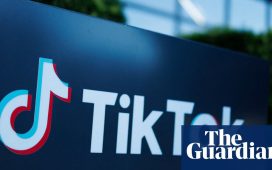With help from Leah Nylen
Editor’s Note: Morning Tech is a free version of POLITICO Pro Technology’s morning newsletter, which is delivered to our subscribers each morning at 6 a.m. The POLITICO Pro platform combines the news you need with tools you can use to take action on the day’s biggest stories.Act on the news with POLITICO Pro.
PROGRAMMING NOTE: Morning Tech will not publish on Friday, June 18. We’ll be back on our normal schedule on Monday, June 21.
— A new era: Lina Khan is now FTC chair. That could mean a major shift in the commission’s antitrust thinking.
— Modern makeover: Sonos’ chief legal officer told MT that antitrust laws need to be brought into the 21st century.
— Broadband watch: House lawmakers are looking for ways to help out small businesses that have been hurt by poor internet connectivity.
HAPPY WEDNESDAY! MORNING TECH IS HERE FOR YOU. I’m your host, Benjamin Din. Did you watch the Senate Judiciary antitrust panel’s hearing? Sen. Amy Klobuchar (D-Minn.) broke the news on Khan, and I felt personally attacked when Sen. Mike Lee (R-Utah) talked about people installing smart lights because they’re too lazy to get off the couch…
Got a news tip? Do you own smart home tech? Email [email protected]. Got an event for our calendar? Send details to [email protected]. Anything else? Team info below. And don’t forget: Add @MorningTech and @PoliticoPro on Twitter.
WELCOME TO THE FTC SHOW, NOW STARRING LINA KHAN — Just a few hours after Klobuchar unexpectedly announced that Khan would be FTC chair, the 32-year-old Amazon critic and anti-monopoly advocate was sworn in to the position. It marks the start of a new era at an agency that has struggled to rein in giant tech companies — most recently, by having its main enforcement power gutted by the Supreme Court.
— What it all means: As chair, Khan will determine the direction of the agency, in terms of what cases and rules it will pursue. It’s worth watching whether she’ll follow through on an academic paper she wrote (no, not the Amazon paper) suggesting the FTC spell out precisely what kinds of behavior it considers an “unfair method of competition.” Another key doc: the Utah Statement, an antitrust framework Khan helped draft with Tim Wu, now of the White House. The statement argues vertical mergers (ahem, Amazon-MGM) deserve more scrutiny, as do questions about how mergers affect labor.
At least for now, Khan will preside over a 3-2 Democratic majority. But that could be over in as soon as a month, once Commissioner Rohit Chopra leaves for the Consumer Financial Protection Bureau. Then Biden will have to nominate someone else — a process that could take a while, given the administration’s track record. (The top antitrust spot at DOJ still doesn’t have a nominee.)
— How it all went down: Only a few people at the White House and the FTC were aware of the decision, which the White House had planned to announce later Tuesday afternoon before Klobuchar spilled the beans. Other candidates for the permanent chair position had been informed about the pick earlier in the day. The timing, shortly after her Senate confirmation, was intentional: Officials were concerned GOP senators might vote against Khan’s confirmation if they knew she would be chair. (Though the White House’s handling of this may make GOP senators more wary about confirming future nominees to independent agencies.)
— An unsurprising response: Conservative opposition was immediate. Open Competition Center, a project of the group Americans for Tax Reform, said Khan will use “antitrust law as a Trojan horse to advance woke goals and policy priorities.”
Progressive groups, though, couldn’t be more thrilled, including Color of Change, the anti-Amazon coalition Athena and anti-monopoly groups. Chopra called her confirmation “a big win for fair competition,” and a spokesperson for Rep. David Cicilline (D-R.I.) said Khan’s input was key on the antitrust package House Democrats introduced last week. (Even the Motion Picture Association is excited about Khan.)
FIRST IN MT: PRIVACY GROUP SAYS FTC NEGLECTS POWERS IT ALREADY HAS — The FTC has been pushing for Congress to restore its Section 13(b) authority, which the Supreme Court stripped it of earlier this year. But the Electronic Privacy Information Center argued in a report out today that the FTC still has plenty of ways to protect privacy and consumers.
“A common refrain from the Commission during this period is that it lacks the authority to address these mounting threats to individual privacy,” the report said. “But the FTC has not made full use of the authorities that it already has.”
ALSO FIRST IN MT: A TECH WARNING ON HOUSE ANTITRUST BILL — The Chamber of Progress, a tech industry coalition that includes Amazon, Facebook and Google, is telling lawmakers that an antitrust bill from Cicilline and Rep. Ken Buck (R-Colo.) could harm services that online users have grown to appreciate — like the Apple-developed apps that come pre-installed on iPhones or Amazon Prime’s free shipping. (For context, 147 million U.S. users had a Prime subscription as of March, according to Consumer Intelligence Research Partners.) H.R. 3816 (117) would prohibit companies from giving their products priority over those of their rivals. Klobuchar told Leah this week that she is especially interested in drafting companion legislation for the proposal.
“Our organization shares your goal of promoting healthy competition online, but we are concerned that your bill targets conveniences that make consumers’ lives easier and imposes mandates that would degrade consumers’ experiences online,” Chamber CEO Adam Kovacevich wrote in a letter to Cicilline today.
The coalition is launching an online ad campaign in the Beltway aimed at highlighting for policymakers the potentially undesirable impacts of Cicilline’s bill. It is also targeting H.R. 3825 (117), from Rep. Pramila Jayapal (D-Wash.) and Buck, which would prevent large platforms from operating businesses that pose a conflict of interest.
PREDATORY PRICING IN THE DIGITAL AGE — Amazon sells its Echo speakers cheaply, just as Google keeps its Google Home devices bargain-priced. That’s a problem, Sonos chief legal officer Eddie Lazarus told senators Tuesday. The tech giants sell products for less than they cost to make, subsidizing them with more lucrative aspects of their sprawling business, he said, which means Amazon and Google “can afford to lose money on the speaker products” — where Sonos can’t.
“Antitrust laws need to be modernized for the digital age,” Lazarus said in an interview after the hearing. A major part of that, he said, will be revamping the laws on so-called predatory pricing, when a company sells products for less than cost in order to dominate a market, only to raise prices later. The law doesn’t “contemplate the cross-subsidization of products we see in the marketplace now,” he said.
Sen. Josh Hawley (R-Mo.) echoed those sentiments at Tuesday’s hearing. “Here we see these companies using their power in voice assistant technology to fortify their existing search and shopping” businesses, Hawley said. “It is becoming more and more apparent that we need big changes.”
HOUSE WEIGHS BROADBAND’S IMPACT ON SMALL BUSINESSES — The House Small Business rural development subcommittee will hold a hearing this morning on how the broadband gap affects small businesses, especially those in rural areas that struggled to move their operations online during the Covid pandemic. Infrastructure talks have stalled, meanwhile, with progressives now threatening to walk away from bipartisan negotiations.
“Factors like low population densities, rugged terrain, and fewer subscribers to spread deployment costs among have contributed to a lack of investment in broadband networks by private companies,” panel Chair Jared Golden (D-Maine) will say, according to prepared remarks shared with MT. The panel’s ranking member, Rep. Jim Hagedorn (R-Minn.), is expected to voice support for legislation like the Broadband for Rural America Act, H.R. 3369 (117), a GOP push to authorize funding for USDA’s broadband connectivity programs.
— Among the witnesses: Downeast Broadband Utility, a municipal nonprofit owned by three towns in rural Maine. The utility’s attendance is a sign of the growing push for nonprofit options, in both rural and not-so-rural areas, to address the nation’s digital divide.
— Another broadband proposal: Sens. Michael Bennet (D-Colo.) and Angus King (I-Maine) reintroduced the BRIDGE Act on Tuesday, aimed at expanding broadband access. This time, they have the support of Sen. Rob Portman (R-Ohio), who is part of the bipartisan group of 10 senators working on an infrastructure deal.
ALSO IN THE HOUSE: HOW TECH CAN COMBAT HUNGER — As part of its “Ending Hunger in America” initiative, the House Rules Committee will convene a roundtable today that examines how technology can make it easier for those who qualify for food assistance programs to sign up. Nonprofit leaders from organizations like Code for America will testify on the importance of human-centered design in the application process.
“This is about more than just simplifying a form or moving more things online, though that’s important,” Chair Jim McGovern (D-Mass.) will say, according to prepared remarks. “This is ultimately about treating struggling Americans with the respect and dignity they deserve.”
HEARD IT ON THE HILL — In response to the Jan. 6 Capitol insurrection, FBI Director Christopher Wray suggested to House lawmakers Tuesday that his agency should have the authority to generally monitor social media activity, “just in case” — something it currently lacks the resources and authority to do. There’s a bit of incongruity there; despite being made aware of threatening posts on social media, federal authorities were unprepared for the attack. Rep. Rashida Tlaib (D-Mich.) was quick to push back, saying expanded law enforcement powers “are inevitably used to target people that look like me, oppressed people of color and minority groups across our country — not those who attacked our Capitol.”
Former FCC Commissioner Michael O’Rielly is joining APCO Worldwide’s International Advisory Council. … Andrew Kalloch is the new head of Airbnb’s Covid-19 housing policy. He will coordinate an initiative aimed at preventing landlords from evicting renters to list properties on the platform. … Earl Matthews will lead Veeam Government Solutions, a new subsidiary of Veeam Software. He is a Trump White House alum and was a special assistant to the Defense secretary. Gil Vega will join the board, as will Nick Ayers, also a Trump alum … Mike Stone is the new CEO of Nytro.ai. He is a Google alum. … Eileen Dombrowski has joined GlobalFoundries as lead for U.S. government affairs. She previously worked in legislative affairs at the departments of Commerce and Transportation. … Bharat Guruprakash is joining API platform provider Algolia as its first chief product officer. He was previously at Twilio.
Applications for schools and libraries to apply for the FCC’s Emergency Connectivity Fund will be accepted from June 29 to Aug. 13. … The National Telecommunications and Information Administration released its final rule for the Connecting Minority Communities Pilot Program, a $268 million pot to expand broadband to minority-serving institutions.
Pulling back the curtain: “Inside Amazon’s Employment Machine,” via NYT.
Full circle: “286 Teams Empowering Voices the World Needs to Hear,” writes MacKenzie Scott, who has donated more than $2.7 billion this year. Among the recipients: Muslim Advocates, a group that once filed a federal complaint against Amazon for discriminating against Muslim employees.
Out and about: Melinda French Gates is making the rounds with D.C.’s power players, Axios reports.
Send help: For the first time, Facebook is seeking a policy advisory opinion from its oversight board, via Adweek.
More options: Customers can now sign up for Dish Network’s own 5G service, Axios reports.
What in the: “World Wide Web source code to be auctioned as NFT,” per the Hill.
We’re concerned: A group of cities, including Los Angeles, Chicago, Boston and D.C., are pushing for Treasury Secretary Janet Yellen to raise the broadband speed threshold that determines eligibility for broadband funding.
Here for you: Tech companies including Adobe, Dell Technologies, HP, IBM and Oracle in a letter today are backing legislation that would boost funding for historically Black colleges and universities.
App Store woes: Apple is helping governments censor LGBTQ+ content, according to a report from open internet groups Fight for the Future and GreatFire.
Tips, comments, suggestions? Send them along via email to our team: Bob King ([email protected]), Heidi Vogt ([email protected]), John Hendel ([email protected]), Cristiano Lima ([email protected]), Alexandra S. Levine ([email protected]), Leah Nylen ([email protected]), Emily Birnbaum ([email protected]), and Benjamin Din ([email protected]). Got an event for our calendar? Send details to [email protected]. And don’t forget: Add @MorningTech and @PoliticoPro on Twitter.
SEE YOU TOMORROW!









